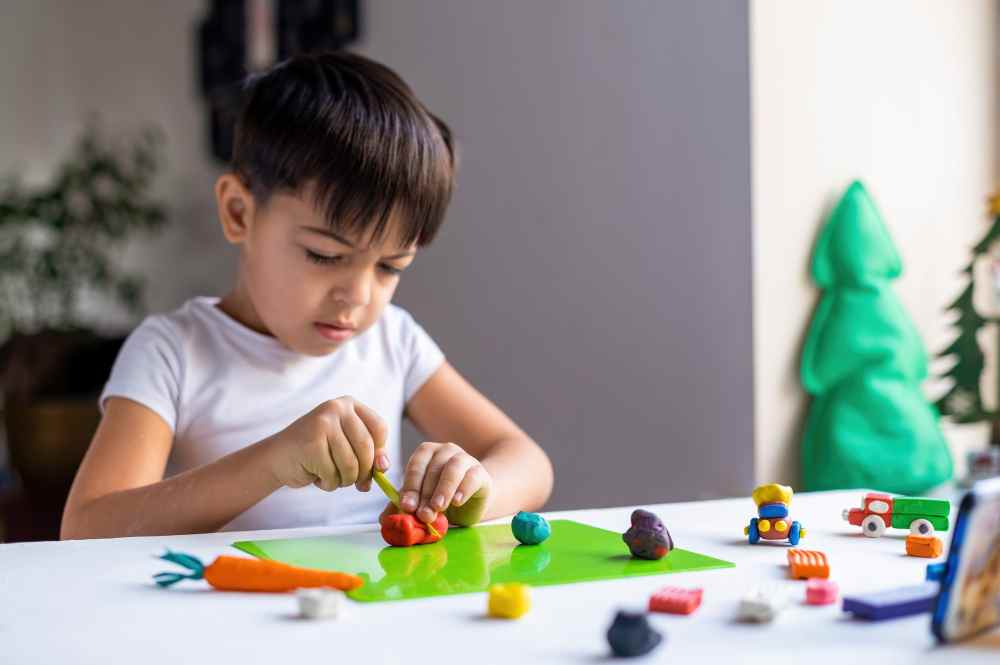Introduction
Monitoring and screening the growth and development of toddlers is crucial to ensuring their
overall well-being and detecting potential developmental delays early on.
Parents and caregivers play a vital role in observing and assessing the milestones achieved
by toddlers.
In this article, we will delve into the importance of normal growth and developmental
monitoring and screening for toddlers, offering practical insights to aid in their healthy
development.
Why is Normal Growth and Developmental Monitoring Essential?
Normal growth and developmental monitoring are vital processes that help identify any
potential delays or issues in a toddler’s development.
By closely observing their growth and assessing developmental milestones, parents,
caregivers, and healthcare professionals can detect and address developmental concerns
promptly.
Early intervention significantly improves outcomes for children with developmental delays,
making monitoring and screening an essential aspect of their overall care.
Understanding Developmental Milestones
Developmental milestones serve as a framework to monitor a child’s growth and
development.
These milestones encompass physical, cognitive, language, and social-emotional domains.
While each child develops at their own pace, a general timeline exists for achieving certain
milestones.
By keeping track of these milestones, parents and caregivers can identify any delays or
deviations from the norm and seek appropriate interventions.
Monitoring Techniques for Normal Growth and Development
Observational Monitoring:
Regularly observing and interacting with your toddler is an effective way to monitor their
growth and development.
Pay attention to their physical abilities, such as crawling, walking, and hand-eye coordination,
as well as their cognitive skills, such as problem-solving and memory retention.
Observe their language development, including vocabulary growth and communication skills.
Additionally, assess their social-emotional development by observing their interactions with
others, emotional responses, and self-regulation.
Developmental Screening Tools:
Developmental screening tools are standardized questionnaires or checklists that aid in
assessing a child’s development.
These tools are designed to identify potential delays or areas of concern.
Examples of commonly used screening tools include the Ages and Stages Questionnaires
(ASQ) and the Modified Checklist for Autism in Toddlers (M-CHAT).
Regular screenings, conducted by healthcare professionals, can provide valuable insights
and guide further evaluation, if necessary.
Consulting Healthcare Professionals
Regular visits to healthcare professionals, such as pediatricians, are essential for monitoring
and screening a toddler’s growth and development.
During these visits, healthcare providers track the child’s growth using growth charts, assess
developmental milestones, and address any concerns raised by parents or caregivers.
They can offer guidance on appropriate interventions, referrals to specialists if needed, and
provide valuable support and education to parents.
Early Intervention and Support
If a toddler shows signs of developmental delays or concerns, early intervention is key.
Early intervention programs are designed to provide specialized services and therapies to
address developmental challenges.
These programs may include speech therapy, occupational therapy, physical therapy, or
early childhood education programs.
By intervening early, children have a greater chance of catching up with their peers and
achieving their full potential.
Conclusion
Monitoring and screening the normal growth and development of toddlers is essential to
ensure their well-being and detect potential delays or issues early on.
Parents, caregivers, and healthcare professionals play a vital role in observing and assessing
developmental milestones.
By utilizing observational techniques, developmental screening tools, and seeking guidance
from healthcare professionals, parents can identify any concerns and provide the necessary
support and intervention for their child’s healthy development.
Remember, early intervention is key to helping children reach their developmental milestones and thrive.











